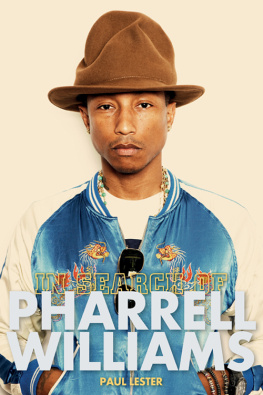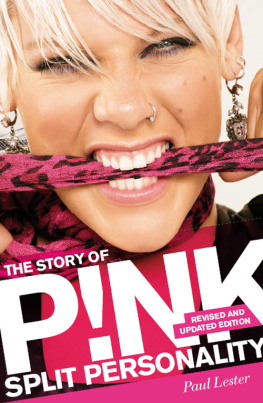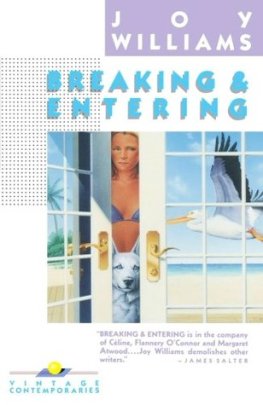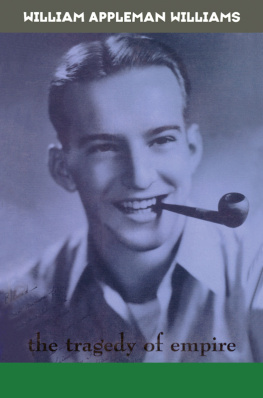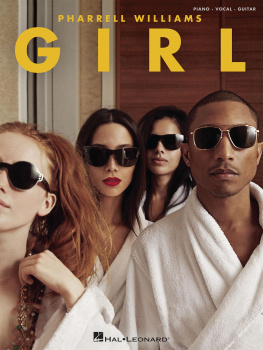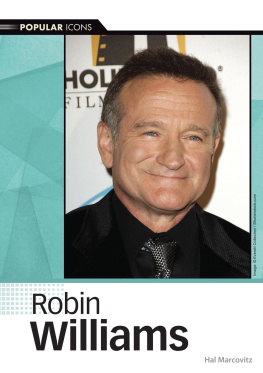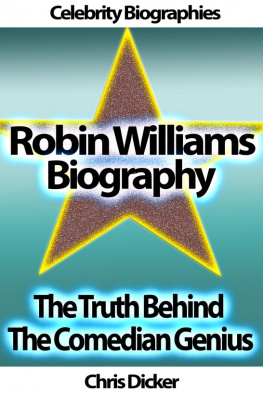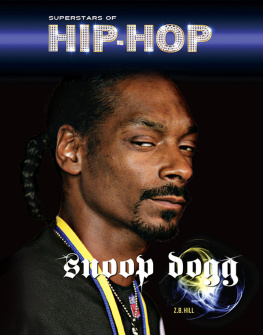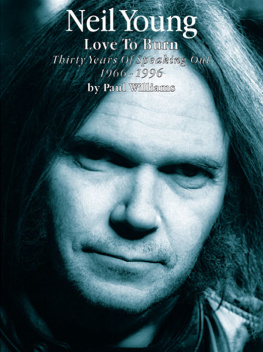
Copyright 2015 Omnibus Press
This edition 2015 Omnibus Press
(A Division of Music Sales Limited, 14-15 Berners Street, London W1T 3LJ)
EISBN: 978-1-78323-531-5
Cover design: Ruth Keating.
Picture research: Sarah Bacon.
The Author hereby asserts his / her right to be identified as the author of this work in accordance with Sections 77 to 78 of the Copyright, Designs and Patents Act 1988.
All rights reserved. No part of this book may be reproduced in any form or by any electronic or mechanical means, including information storage and retrieval systems, without permission in writing from the publisher, except by a reviewer who may quote brief passages.
Every effort has been made to trace the copyright holders of the photographs in this book, but one or two were unreachable. We would be grateful if the photographers concerned would contact us.
A catalogue record of this book is available from the British Library.
For all your musical needs including instruments, sheet music and accessories, visit www.musicroom.com
For on-demand sheet music straight to your home printer, visit www.sheetmusicdirect.com
Acknowledgements
I was fortunate to be able to spend the day with Pharrell Williams, and interview him at length, in February 2004. This book includes previously unpublished material from that encounter. There is also unpublished material from my interviews with Nile Rodgers of Chic (from 2013), Tyler, The Creator (from 2011) and Earl Sweatshirt (from 2013). I am grateful to them all for their courtesy and openness.
Introduction
H ow good is Pharrell Williams? So good that he managed to make Ed Sheeran previously an acoustic singer-songwriter with no little success but next to zero credibility seem cool. With his production and co-writing of the single Sing, he managed to, overnight, transform the doughy ginger troubadour into a louche and lithe, Anglo answer to Justin Timberlake.
But then, Williams could get pop gold out of the basest raw material. And he was on something of a roll that year. In 2013-14, dubbed by Oprah Winfrey The Year Of Pharrell, he was everywhere: his singles, either as a team or main player, notably Robin Thickes Blurred Lines, Daft Punks Get Lucky and his own Happy, were the worlds biggest hits. Truly, this was a golden age for the boy from Virginia Beach.
Actually, boy isnt quite right, and theres another reason why his colossal success was so extraordinary: he was achieving it at the relatively ripe old age of 40-plus. Historically, musicians, from Elvis Presley to Michael Jackson, The Beatles to The Beastie Boys, have done their best work in their twenties, or at a stretch their early thirties. Pharrell and he was increasingly becoming known solely by his first name, joining that elite pantheon of mononymous pop stars that includes Madonna, Prince, Beyonc, Rihanna and Kanye was enjoying superstardom when most artists popularity is on the decline.
His boyish good looks were part of the appeal. The journalist from Vogue magazine had a field day with her description of the irresistible, ageless musician as Sphinx-like, with wide-set eyes, long eyelashes and a mouth that flirts with a smile Pharrell is remarkable looking, she decided, although he was dismissive of any attempts to laud his beauty, putting his flawless skin down to being cognisant and washing his face with Cetaphil and cold water. Men, too, fell for his charms, even The Guardians normally hard-nosed Simon Hattenstone admiring his cheekbones [that] you could cut diamonds on [and] skin that should belong to a 25-year-old.
He was that rarity: the backroom boy and producer The guy standing next to the guy, as he memorably and self-effacingly described himself to Oprah turned charismatic frontman. He could help performers from all genres effect transitions radical enough to make their names or rescue their careers. When Justin Timberlake wanted to remodel himself after his boy-band tenure with *N Sync had come to a natural end, who did he call? Pharrell. When Britney Spears felt it was time to morph from cute teen pop girl-next-door to fully-fledged purveyor of adult Raunch&B, who was top of her wish list? The artist formerly known as Skateboard P.
And he could shift gear just as fast himself. Pharrell is one of those artists who refuses to stand still. His productions as one half of The Neptunes (the name for his studio partnership with Chad Hugo) have tended to change according to who is in front of the recording studio controls. His band N*E*R*D flit effortlessly between hard rock, jazz-pop and ethereal soul. His solo output makes a virtue of rampant stylistic promiscuity. The run of form that he evinced between 2013 and 14 proved that.
Even more extraordinary was that Pharrells 2010s mastery of the charts wasnt his first moment in the sun. Far from it. He had enjoyed staggering success a full decade earlier, by which time he was already ancient in pop terms. Thats when, in his thirties, he designed a series of innovative smash hits for Nelly (Hot In Herre), Britney Spears (Im A Slave 4 U), Justin Timberlake (Like I Love You), Snoop Dogg (Drop It Like Its Hot), Gwen Stefani (Hollaback Girl), Jay-Z (I Just Wanna Love U (Give It 2 Me)), Mystikal (Shake Ya Ass), Busta Rhymes (Pass The Courvoisier Pt. 2), Usher (U Dont Have To Call), Kelis (Milkshake) and Clipse (Grindin).
Pharrell and Chad Hugo were a sort of two-man Motown. Their production sorcery was so exquisitely effective that it enabled them to dominate the music scene (pop, R&B, hip hop, urban and all sectors in between). And their hegemony was so complete in the early part of the new century that all manner of mind-boggling statistics were bandied around: there was apparently a survey in August 2003 that found The Neptunes produced almost 20 percent of songs played on British radio while a similar survey in the US had them at 43 percent; they were also responsible for one-third of Americas Billboard 100 chart.
No wonder he and Hugo were awarded the title Producer of the Decade for the 2000s by Billboard magazine and readers of Vibe magazine voted them the third greatest hip hop producers of all time, beaten only by the legendary Dr. Dre and DJ Premier. Nor is it any surprise that they were estimated to have a net worth of $155 million and, at one point, were said to be commanding as much as $150,000 to produce a single song. The Neptunes remain one of the most successful production teams in music history, with no fewer than 24 Billboard Hot 100 Top 10 hits during the late nineties and 2000s. In 2004, The Neptunes got the ultimate recognition for their work when they walked away with the coveted Producer of the Year award at the Grammys.
The Neptunes so hot they were rumoured to have turned down Elton John and Mick Jagger were the fabulous alchemical brothers for a new era. Their music was groundbreaking, even avant-garde, and yet it was also highly commercial and immaculately suited to the airwaves. In the early noughties you couldnt get through an hour of pop or rap radio without hearing their signature digital sound, with its queasily infectious blend of minimalist electronics and polyrhythmic percussion, startling use of synths and beats and guitars, their genius often a testament to what they left out of a track as much as what they put in.
Williams has long since proven that he has the Midas touch, with literally dozens of hits, whether solo or as collaborations. But his success has not just been in the pop realm. He has shown his capabilities in a variety of areas. By the 2010s he had a multimedia creative collective called i am OTHER that served as an umbrella for all of his many business endeavours including a record label (Star Trak Entertainment), apparel (his Billionaire Boys Club clothing and Ice Cream footwear brands), textiles (Bionic Yam), and a dedicated YouTube channel. He had a boutique store in New York City on West Broadway. He had co-designed a jewellery collection called Blason, spectacles for Louis Vuitton and a line of sunglasses for Moncler called Moncler Lunettes. He had worked on furniture with Emmanuel Perrotin and a French manufacturer, Domeau & Prs. He wrote a memoir,

